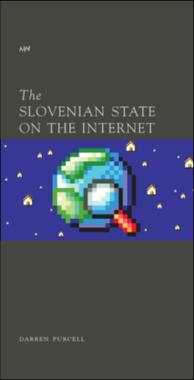| dc.description.abstract | I argue that the Internet is usable by the state as well as individuals and groups to serve its purposes. These efforts will be studied from the framework of the creation of space, particularly concepts of representations of space and representational spaces. The Internet facilitates the creation of images of place that are strategically used to influence perceptions of place. In the case study, I examine Slovenia’s government websites to demonstrate that a state does have a need to control information, to project images that are aimed to induce activities like tourism, investment, diplomacy, and establish an unequivocal state identity. The government sites demonstrate that through the use of symbols, propaganda cartography, carefully worded text, and other iconography, representations of space and representational spaces are created that support the goals of the Slovenian state, which are placed in the context of the country’s position in the system of global capitalism. | en_US |
